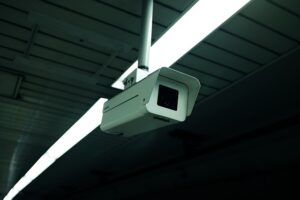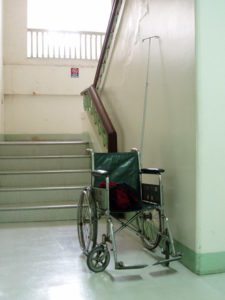 Stop Nursing Home Abuse With Video Evidence
Stop Nursing Home Abuse With Video Evidence
In order to stop nursing home abuse, some facilities and families have used camera evidence. How does this type of evidence work, what has it found, and can it help in a legal case?
Cameras in Main Rooms and Common Areas
As a proactive measure to deter and prevent nursing home abuse, some facilities have installed surveillance cameras in hallways, dining areas, and other shared spaces. These cameras allow the (often very large) corporations that run the centers to monitor the interactions between residents, staff, and visitors.
The cameras can also serve as a visual deterrent. If potential abusers are aware of their presence, they may be less likely to engage in abusive behaviors.
The recorded footage can serve as vital evidence in investigating and proving cases of nursing home abuse. In fact, in states all over the country, workers have denied abuse until video evidence forces them to confess.
Recently, cameras found a Michigan worker hurling physical abuse and racial slurs; a Texas grandfather being beaten, kicked, and dragged on the floor by two staff members; and an Alzheimer’s patient being thrown to the ground in New York.
 Private Cameras in Your Room
Private Cameras in Your Room
Only nine states allow nursing home residents or their loved ones to place cameras in their rooms:
- Illinois
- Kansas
- Louisiana
- Minnesota
- New Mexico
- Ohio
- Oklahoma
- Texas
- Washington
Usually in those states, you are still supposed to notify the nursing home in advance. And in other states, like my home state of Tennessee, you have to ask for permission from the home to install a camera.
Now that said, the nursing home also agreed not to abuse you or your relative. If they do so, their behavior is a crime; putting a nanny cam in your own nursing home room is not. It is sometimes, however, a contract violation.
 Using Camera Evidence in a Civil Case
Using Camera Evidence in a Civil Case
I’ve had clients who installed cameras and found abuse. It’s why something like nanny cams exist. And it’s why activists are fighting to allow cameras in every nursing home room if a patient wants one.
For now, if you live in a state that doesn’t allow cameras in the room, you may not be able to use the footage as evidence. That’s something to discuss with your attorney.
However, in my professional experience as a nursing home abuse lawyer, most families would prefer to know rather than not know. They use the cameras to protect themselves and their loved ones first and foremost, and concerns over proving it in court come later.
It’s also possible the evidence can simply help a family confirm what they already suspect. Maybe you already found a bedsore, or a loved one told you of abuse happening to them. You can still have a very successful lawsuit without video evidence. So if you suspect and want to stop nursing home abuse, contact an attorney.
 Stop Nursing Home Abuse With Our Help
Stop Nursing Home Abuse With Our Help
Our Memphis nursing home abuse lawyers can help you figure out your options.
Perhaps you’ve used cameras in the room and found video evidence; or you have footage from a common area; or maybe you’re wondering whether you can build a case without any cameras at all.
We can help. Our award-winning team will investigate the facility, gather evidence, and help you build a case. We will fight for you and your loved ones like they’re our own family. And we’ll treat you with respect and open communication every step of the way. Plus we don’t win anything unless and until you do.
That’s how we’ve built such a strong reputation from so many clients in dire straits. We’ve helped thousands of Mid-South families get justice. And we’re ready to do that for you.
To get started, just fill out the form on this page or call us today at 901-327-2100.
